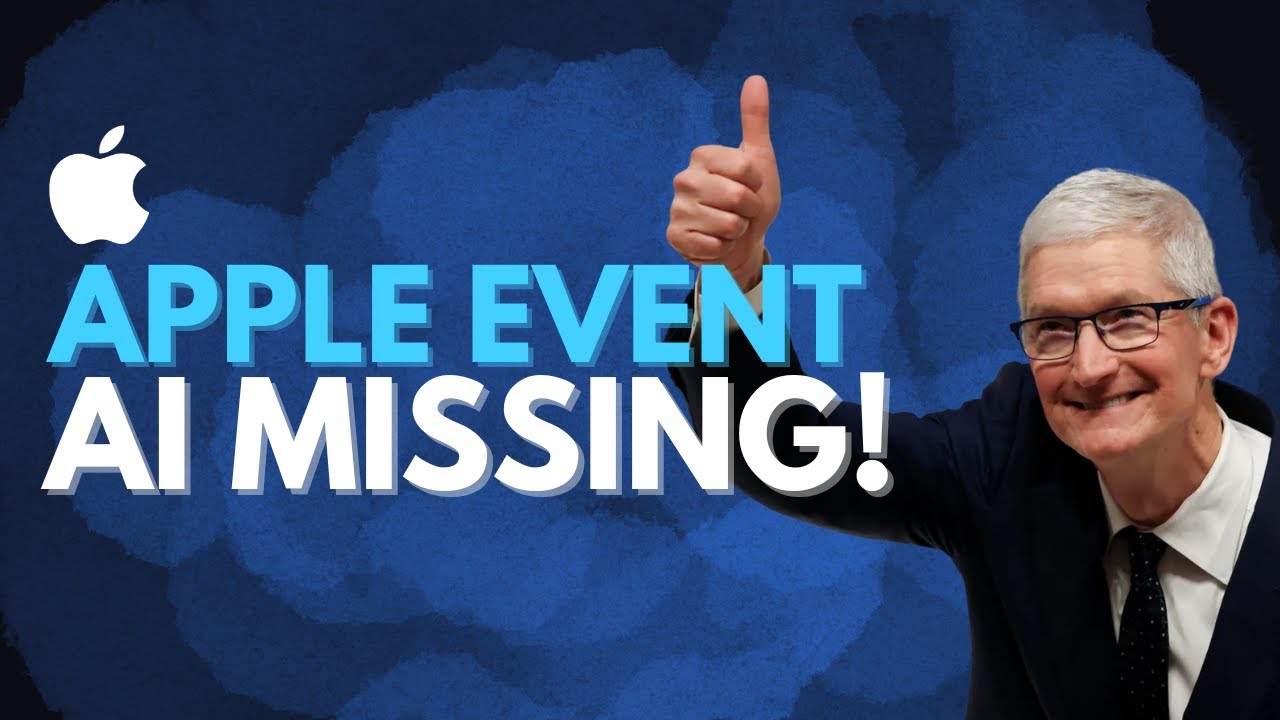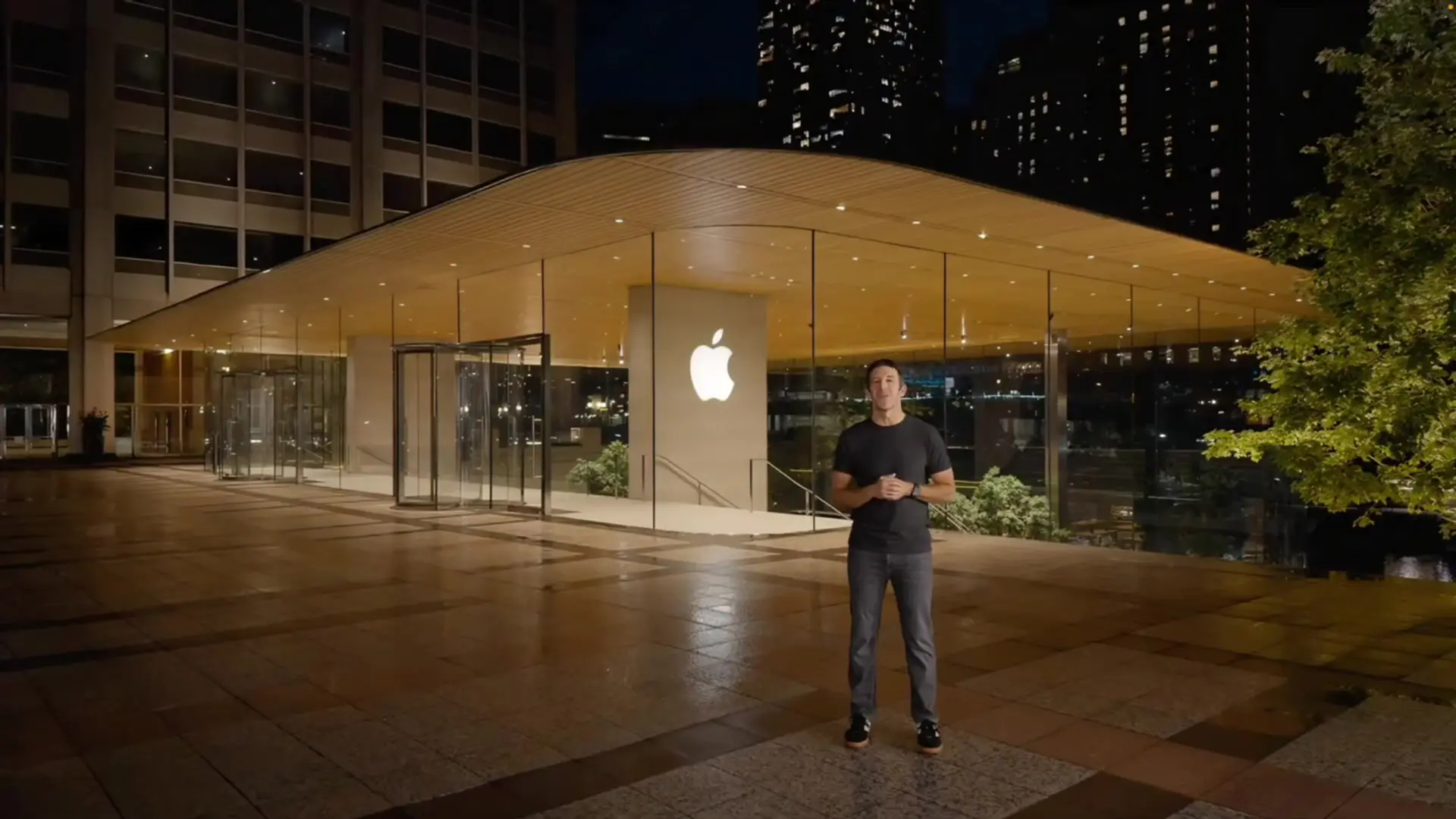
Apple's highly anticipated September event has concluded, bringing us the usual parade of sleek hardware updates but with a conspicuous absence that industry watchers couldn't help but notice. In a tech landscape dominated by artificial intelligence breakthroughs, Apple chose to remain surprisingly quiet about their AI initiatives.
What Apple Did Announce
The event delivered several hardware updates that align with Apple's traditional product cycle. The iPhone 17 lineup was unveiled, including a brand new model called the iPhone Air - marketed as the thinnest and lightest iPhone ever created. The Pro and Pro Max models received expected upgrades including the new A19 chip, improved displays, enhanced camera systems, and extended battery life.
Additionally, Apple introduced the AirPods Pro 3, positioning them as their smartest earbuds yet with improved noise cancellation, heart rate tracking capabilities, and real-time language translation features. The Apple Watch Series 11 and Ultra 3 also made appearances, with health monitoring improvements including blood pressure detection, sleep scoring, and satellite connectivity for the Ultra model.
Software updates were also mentioned, with iOS 26 featuring a new liquid glass design aesthetic. Overall, the event followed Apple's classic formula - polished hardware, incremental upgrades, and a few pleasant surprises.
The AI-Shaped Void
What stood out most was what Apple didn't discuss: Apple Intelligence. Just a few months ago at their developer conference, the company made headlines with AI announcements including GenMoji, Image Playground, Visual Intelligence, and a completely revamped Siri. These features represented Apple's answer to the AI revolution sweeping through the tech industry.
Yet at their biggest product launch event of the year, there was no demo of Siri 2.0, no updates on previously announced AI features, and barely any acknowledgment that Apple is participating in the broader AI conversation.

This silence is particularly notable when contrasted with competitors' approaches. Google is deeply integrating Gemini into Android, Samsung is heavily promoting Galaxy AI, and Microsoft with OpenAI continues to release updates at a rapid pace. In this context, Apple's AI reticence feels increasingly conspicuous.
Potential Reasons Behind Apple's AI Silence
- Strategic Pacing: Apple may be deliberately saving major AI announcements for future events where software traditionally takes center stage, rather than hardware-focused September events.
- Quality Concerns: The company might feel their AI offerings aren't polished enough for mainstream attention yet, preferring to wait until they can deliver a truly impressive demonstration.
- Integration Philosophy: Consistent with Apple's historical approach, they may be focusing on seamlessly integrating AI into experiences rather than explicitly marketing features as "AI-powered."

This third possibility aligns with observations from the event. AI capabilities were subtly present in features like the AirPods translation functionality and the processing capabilities of the A19 chip, but Apple avoided explicit AI terminology. This approach of making technology invisible rather than a marketing focal point has long been part of Apple's product philosophy.
The Strategic Risks of AI Silence
While Apple's measured approach has served them well historically, the current AI landscape presents unique challenges. By remaining quiet while competitors aggressively promote their AI capabilities, Apple risks losing control of the narrative. Consumers may increasingly perceive Google, Microsoft, and other tech companies as the true AI innovators, with Apple falling behind.

This perception challenge comes at a critical juncture for smartphone evolution. The iPhone, like most modern smartphones, has reached a maturity phase where hardware improvements are increasingly incremental. What will drive future upgrade cycles isn't necessarily thinner devices or marginally better cameras, but rather fundamentally smarter software that transforms how users interact with their technology.
Apple's Potential AI Roadmap
Despite the current silence, Apple's AI strategy is likely still developing behind the scenes. The previously announced Siri overhaul and Apple Intelligence features will probably roll out in phases over the coming year, potentially with more significant announcements at future events.
Apple has historically preferred to enter markets later but with more refined offerings. This pattern may repeat with AI, where they're allowing competitors to navigate early challenges while they develop a more cohesive, privacy-focused approach aligned with their brand values.
The Broader Industry Implications
Apple's approach to AI will have significant implications for the broader tech industry. As one of the most influential consumer technology companies, their eventual AI implementation could set standards for how these technologies are integrated into everyday devices.
The question remains whether Apple's strategy of patience and polish will prove successful in the AI era, or if the rapid pace of AI advancement requires a more aggressive approach. This tension between methodical refinement and fast-paced innovation represents one of the most significant strategic challenges facing Apple today.
Conclusion
Apple's September event demonstrated their continued excellence in hardware design and incremental innovation, but the AI-shaped hole in their presentation raises important questions about their competitive positioning in a rapidly evolving technological landscape.
Whether Apple is strategically biding their time or genuinely falling behind in AI capabilities remains to be seen. What's clear is that the company's approach to artificial intelligence will be one of the most closely watched aspects of their business strategy in the coming years, potentially determining whether they maintain their position as a leading technology innovator or cede ground to more AI-forward competitors.
Let's Watch!
Apple's Silent AI Strategy: Why Their September Event Skipped Intelligence Features
Ready to enhance your neural network?
Access our quantum knowledge cores and upgrade your programming abilities.
Initialize Training Sequence